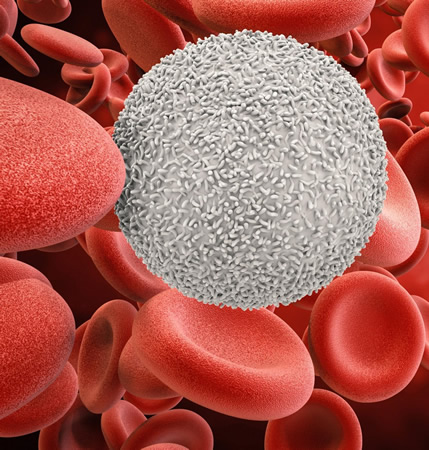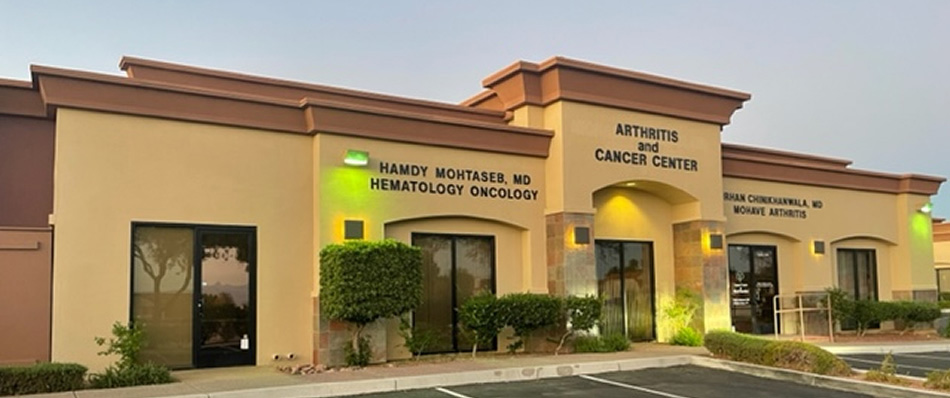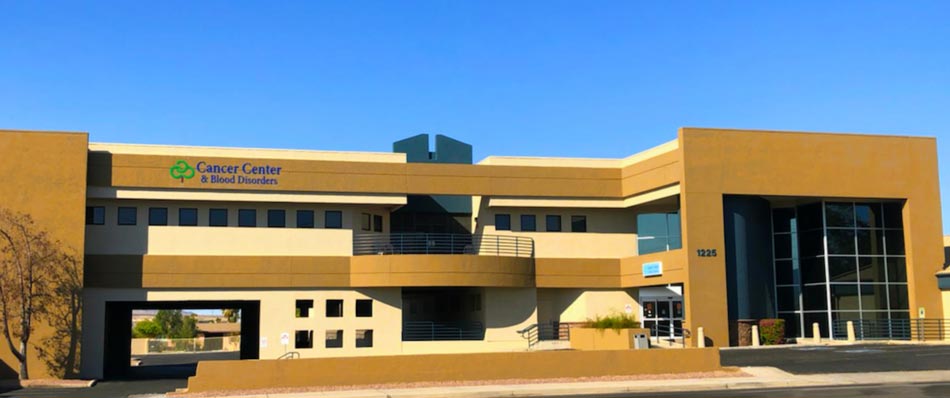| Monday: | 8:00 AM - 4:00 PM |
| Tuesday: | 8:00 AM - 4:00 PM |
| Wednesday: | 8:00 AM - 4:00 PM |
| Thursday: | 8:00 AM - 4:00 PM |
| Friday: | 8:00 AM - 12:30 PM |
| Saturday: | Closed |
| Sunday: | Closed |
-
Hematology & Blood Disorders | Blood Doctor in Las Vegas & Henderson, NV
Overview

Blood doctors, also known as hematologists, specialize in the diagnosis and treatment of disorders related to the blood and its components. Hematology services include a variety of diagnostic tests and treatments that help diagnose and treat conditions such as anemia, leukemia, lymphoma, thrombosis, clotting disorders, hemophilia, and more.
Hematology Services
At Mohtaseb Cancer Center & Blood Disorders, our hematology services include the use of laboratory testing to identify specific problems with the blood or blood components. These tests can provide information about red blood cell count, white blood cell count, platelet count, hemoglobin level, hematocrit level (percentage of red cells in the blood), and other elements that help evaluate overall health. Specialized lab tests can provide additional information about genetic disorders or abnormal proteins in the body.
Dr. Mohtaseb will use these results to diagnose a patient’s illness or condition and determine an appropriate treatment plan. Depending on the type of disorder being diagnosed or treated, this could involve medications; lifestyle modifications such as diet changes; physical therapy; alcohol elimination; transfusions; cryopreservation (freezing) of stem cells for future use; bone marrow transplants; radiation therapy; and/or chemotherapy.
Bone Marrow Biopsy
For some conditions, a Dr. Mohtaseb may recommend that a patient undergo a bone marrow biopsy examination to look for abnormalities in the marrow itself. This test involves taking a sample of bone marrow by inserting a needle into one of the larger bones in the body—usually in either hip—and extracting some fluid from it. The extracted fluid is then sent off to be examined under a microscope by laboratory technicians who specialize in looking for abnormalities within the tissue samples themselves.
Blood Disorder Treatment
Blood disorders diagnosed and treated at the Mohtaseb Blood Disorders Center include benign hematologic (blood) conditions such as anemia, thrombocytopenia (low platelet count), leukocytosis (elevated white blood count), bleeding and clotting conditions, hemochromatosis (iron overload), polycythemia (elevated red blood cell count). Treatment of these conditions may include erythrocyte stimulating agent (ESA) such as Procrit, Myeloid stimulating agents such as Neupogen, Neulasta, megakaryocytes (platelet stimulating agents) such as Promacta and Nplate, therapeutic phlebotomy for treatment of iron overload conditions or hemochromatosis and polycythemia.
Malignant hematologic conditions diagnosed and treated by Dr. Mohtaseb include myelodysplastic syndrome (MDS), acute and chronic leukemias, plasma cell disorder such as myeloma or Waldenstrom, chronic lymphocytic leukemia, (CLL), chronic myelogenous leukemia (CML), myeloproliferative neoplasm such as myelofibrosis, polycythemia and essential thrombocythemia. Treatment of these malignant conditions may include chemotherapy, biologic therapy or targeted therapy.
Blood Platelet Transfusions
Another important aspect of hematology services is performing regular platelet transfusions based on lab results from previous testing. Platelets are small cells found in your bloodstream that help your body form clots when you have been injured or are at risk for bleeding too much due to surgery or injury. Depending on how severe your condition is, Dr. Mohtaseb may recommend regular platelet transfusions so that you don’t experience excessive bleeding during procedures or if your condition worsens over time. Platelet transfusions are typically given through an IV infusion at the Mohtaseb Cancer and Blood Disorders Center which is specifically equipped for this procedure.
Blood Dissorder Counseling Services
In addition to providing diagnostic tools and treatments for patients suffering from various inherited blood diseases like sickle cell anemia or thalassemia majora, the Mohtaseb Cancer and Blood Disorders Center also provide counseling services to help individuals cope with their particular medical condition better emotionally and psychologically. For example educational programs focused on nutrition management are commonly offered as well as stress reduction techniques tailored specifically towards those dealing with chronic illnesses like hemophilia which can greatly reduce pain levels over time while increasing quality of life immensely.
Furthermore support groups specific to certain illnesses such as leukemia can offer social networks where members share experiences stories advice and resources related to living with their disease which helps foster feelings of community inclusion amongst participants. All these aspects make up what we consider comprehensive holistic care since hematology has now become much more than just diagnoses & treatments but instead aims towards improving one's mental state as well which ultimately leads to better overall health outcomes & satisfaction from patients!
-
Related Information
- Consultations
- Bone Marrow Biopsy
- Chemotherapy
- Hematology & Blood Disorders
- Immunotherapy
- Targeted Thearpy
- Cancer Research & Clinical Trials
- Patient Education & Services
- Genetic Risk Evaluation & Testing
- Infusion Suite
- Oncology Care
- Laboratory
- Dispensing Pharmacy
- Pain Management
- Precision Medicine
- Biologic Therapy
- Family Support
- Financial Assistance



